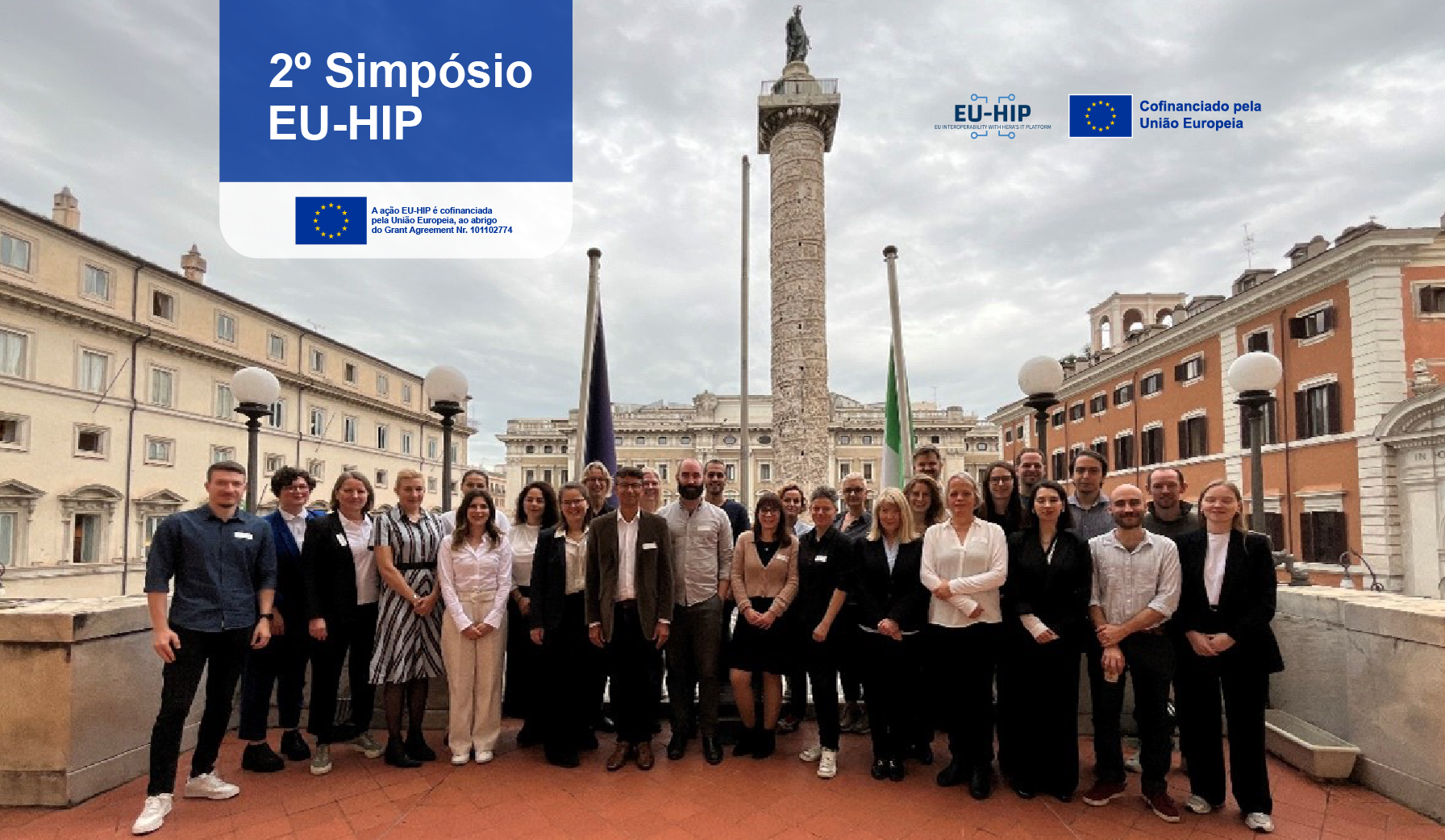Given the growing need to enhance preparedness and responsiveness to public health emergencies, the European action EU-HIP (EU Interoperability with HERA’s IT Platform) aims to strengthen public health digital infrastructures across Europe. In Portugal, SPMS, as the national competent authority, leads a working group and a task, working closely with various European and national entities to develop effective and coordinated responses to public health emergencies.
EU-HIP seeks to support Member States and associated countries in strengthening their national information and communication technology systems, with a focus on creating more robust and interoperable systems. This effort aims to establish a future connection with the ATHINA platform, currently under development by the Health Emergency Preparedness and Response Authority (DG HERA). ATHINA will be essential for monitoring public health threats, facilitating information sharing between countries, and enabling more efficient management of medical countermeasures at a European level.
EU-HIP has been collaborating with DG HERA to align work plans and outcomes with the development of the ATHINA platform. This effort seeks to establish a strategic collaboration at the European level, promoting a coordinated response to public health emergencies, recognizing that diseases have no borders, and that the digitalization of preparedness and response is fundamental in the current context of health systems.
After 1 year and 10 months of intensive work, SPMS recently presented the mapping of national technical needs, developed in collaboration with the National Institute of Health Doutor Ricardo Jorge (INSA), the Directorate-General of Health (DGS) and the Central Administration of the Health System, I.P. (ACSS). Among the identified priorities are the strengthening of surveillance system interoperability, the standardisation and automation of data reporting, and the development of environmental surveillance modules, which are all fundamental for strengthening national public health systems. In addition to Portugal, countries such as Lithuania, Norway, Denmark, Sweden, and Germany have also summarised their technical needs, challenges, and priorities, many of which are similar to those identified by Portugal. At the same time, Belgium, Slovenia, Romania, Iceland, the Netherlands and Croatia presented the progress made in projects to improve their systems, highlighting initiatives such as mandatory and real-time laboratory surveillance, as well as the standardization of electronic health records, which are used as databases for epidemiological intelligence. These results reflect the collective effort aimed at developing a more resilient and interoperable technological base for responding to public health emergencies.
SPMS also presented the preliminary results of a report on the use of artificial intelligence (AI) in public health, highlighting fundamental principles for its responsible use. The report aims to guide policymakers and public health leaders in leveraging the transformative potential of AI, while responding to critical sustainability challenges and building trust in technology.
Building on the work already done, SPMS will continue to collaborate with the national institutions DGS, INSA, and ACSS, with the aim of maximising the outcomes of this action in the national context, identifying the essential needs for the development of more capable platforms, prepared to ensure effective responses to public health emergencies. SPMS’s participation in the European action EU-HIP reinforces Portugal’s commitment to building a solid and interoperable public health digital infrastructure, essential to address future challenges in a secure and efficient manner.
Disclaimer:The EU-HIP action is co-funded by the European Union, EU4Health Program 2021-2027 under Grant Agreement Nr. 101102774. Views and opinions expressed are however those of the author(s) only and do not necessarily reflect those of the European Union or the European Health and Digital Executive Agency (HaDEA). Neither the European Union nor the granting authority can be held responsible for them.





